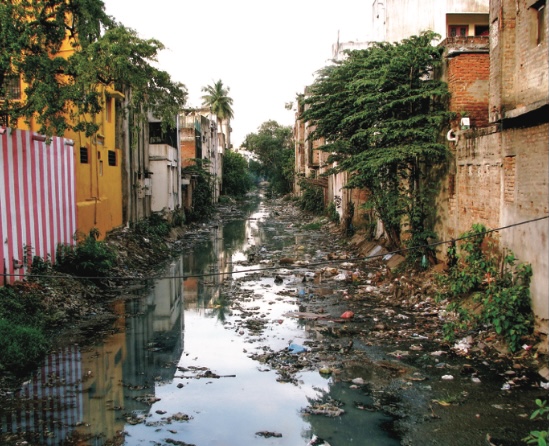ENVIRONMENT
RESCUING THE SOURCE OF LIFE: WATER
______________________
The Global Interfaith WASH Alliance brings religious leaders together to hasten urgently needed projects for clean water, sanitation and hygiene
______________________
D ESPITE CONCERTED INTERNATIONAL effort to meet targets set in the United Nations Millennium Development Goals, roughly 2.5 billion people remain without basic sanitation services; half of these people live in India and China. Progress on increasing access to clean water has been improving and is actually proceeding ahead of schedule, but a large proportion of humanity remains without an easily accessible clean water source. Fatal diseases caused by lack of sanitation are highly skewed towards children, with roughly 1,600 children dying each day due to diarrhea-related problems. This is where the Global Interfaith WASH Alliance (GIWA, giwaconference2013.org [http://giwaconference2013.org]) comes in.
Launched at UNICEF in New York City last September, GIWA brings together representatives of most of the world’s faith traditions to “save lives by accelerating and intensifying water, sanitation and hygiene projects worldwide.” This will be done in a practical sense by “teaching Community-Led Total Sanitation (CLTS, www.communityledtotalsanitation.org [http://www.communityledtotalsanitation.org]) while also improving Water, Sanitation and Hygiene (WASH) training and services.”
Representing Hinduism within this alliance of interfaith and civil society groups is Ganga Action Parivar (www.gangaaction.org [http://www.gangaaction.org]), the environmental coalition founded by Swami Chidanand Saraswati, head of Parmarth Niketan ashram in Rishikesh (www.parmarth.com [http://www.parmarth.com]). Ganga Action Parivar focuses on reducing the staggering pollution flowing into the River Ganga.
Speaking with HINDUISM TODAY, Muniji (as Swamiji is known) says, “Here in India, our work has already begun. In the aftermath of the tragic floods of Uttarakhand’s Himalayas, the Global Interfaith WASH Alliance saw that far too many people were sick and dying because of resulting poor water conditions. Our workers in the field took action, delivering water purification tablets and filters and teaching populations about the crucial importance of drinking uncontaminated water. We have also started working in schools to teach children proper hand washing, for by simply washing one’s hands, so many diseases can be prevented. Moreover, we are working to build eco-friendly toilets in schools and to provide households and travelers with access to eco-friendly toilets as well. In such a way, our environment will be cleaner, lives and health will be protected, and the dignity of women and girls will also be safeguarded.”
FLICKR/MCKAYSAVAGE
Residents resigned: A polluted canal in a Chennai neighborhood during the monsoon
• • • • • • • • • • • • • • • • • • • • • • • • • •
Community-Led Total Sanitation is the policy cornerstone of this project. Started in 2000 in rural Bangladesh and now implemented in 50 countries, CLTS “focuses on the behavioral changes needed to ensure real and sustainable improvements. It invests in community mobilization instead of hardware and shifts the focus from toilet construction for individual households to the creation of open defecation-free villages.”
The clear challenge here, not unique to GIWA, is taking the momentum of the program launch and transforming it into practical, community-level action. Muniji explains how the world’s religious leaders are in a unique position to help in bringing about the sort of practical changes required here: “Since the dawn of history, faith has provided a foundation from which social norms develop,” Muniji explains. “It is to faith leaders that billions are drawn in times of joy and sorrow, as well as in the search for inner meaning. As teachers to the masses, the words of faith leaders inspire, motivate, guide and enable. Through their words and actions, they can bring about change in ways that others, quite simply, cannot.”
“Of this universe, it is in truth the waters that were made first. Hence, when the waters flow, then everything here, whatsoever exists, is produced.”
—Shatapata Brahmana
